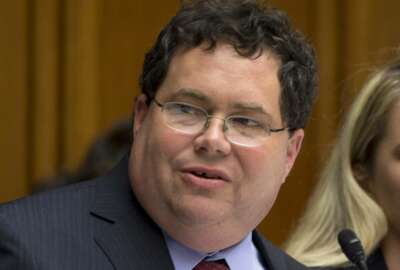
Agencies look to bring partners into federal data strategy ‘conversation’
With the Office of Management and Budget soon to release the draft version of its federal data strategy, forward-thinking agency program offices see opportunities...
With the Office of Management and Budget soon to release the draft version of its federal data strategy, forward-thinking agency program offices see opportunities to leverage their data to get a better sense of how much performance they get out of each dollar in their budget.
Mary Hyde, director for research and evaluation for the Center for National and Community Service, said the upcoming strategy could set a strong governmentwide tone for evidence-based policymaking.
“It’s useful to have this overarching guidance to a point, to sort of do our internal fights — to be able to say, ‘Look, this is a larger conversation. This is not just me and my office. This is not just something that our agency is getting at,’ Hyde said. “This is a federal conversation and [we] look to this to see how we fit into that.
Speaking Thursday at an event organized by Georgetown University’s McCourt School of Public Policy and Results for America, Hyde also highlighted some of the progress her agency has made standing up a data council, which has representation from the office of the chief financial officer, the program office and the agency’s IT offices.
“Our budget director is supposed to be on that council, so we can talk to her. Our performance person will be on that council, [so] that we can start having this conversation of how we tie all of this data together in a more meaningful way,” she said.
Agencies seek guidance on data, privacy issues
In the digital age, agency program offices find themselves data-rich, but often dollar-strained.
Suzette Kent, federal chief information officer — one of the lead proponents of the federal data strategy — has discussed opportunities to make the most of the government’s huge trove of public-facing data through commercialization.
But before getting to that big payoff, agencies must contend with privacy and security issues.
Barry Steffen, a senior social science analyst for the Department of Housing and Urban Development’s Office of Policy Development, said his office has partnered with the Census Bureau, which has led the charge on many of these issues as the government’s preeminent statistical agency.
“I think we’re all grappling with protecting privacy and we find that even the Census Bureau, they’re still working through some of those issues too. I hope that there can be more collaboration and sharing of best practices, and standards for protecting privacy,” Steffen said regarding the upcoming federal data strategy.
The strategy looks to drive home some of the points made about evidence-based policymaking in the Trump administration’s government reorganization plan it released this June.
Emily Schmitt, deputy director for the Office of Planning, Research and Evaluation at the Health and Human Services Department’s Administration for Children and Families (ACF), said her office is updating the “confidentiality toolkit” it launched a few years ago to promote a culture of transparency at HHS.
“This was in response what we heard, that a lot of times, our branches weren’t sharing data because they weren’t clear about, or they were taking a conservative interpretation on unclear guidance about what was allowable,” Schmitt said.
The toolkit includes a publication outlining what’s permissible with all of the datasets that ACF overseas, and include sample memorandums for understanding (MOUs) for data-sharing agreements.
“We really are working on a stance on confidentiality recognizing that there’s always a risk to sharing data, but there’s also a risk to not sharing data, because we are trying to best serve our clients,” Schmitt said.
Because most of its research comes from independent contracts, she said ACF looks to ensure security for all of its data owners, and recently hired a full-time security expert. ACF, she added, is also in the process of hiring a full-time privacy expert.
Susan Jenkins, director for performance and evaluation at HHS’s Administration for Community Living, said her office has made strides in getting colleagues to see the value of evidence-based policymaking.
“If there’s anything good about your program, we will find it. We may find other things, and we will not hide those other things, but we’ll keep looking until we find something good about your project. That really opens people up to say OK,” Jenkins said.
Copyright © 2025 Federal News Network. All rights reserved. This website is not intended for users located within the European Economic Area.
Jory Heckman is a reporter at Federal News Network covering U.S. Postal Service, IRS, big data and technology issues.
Follow @jheckmanWFED





